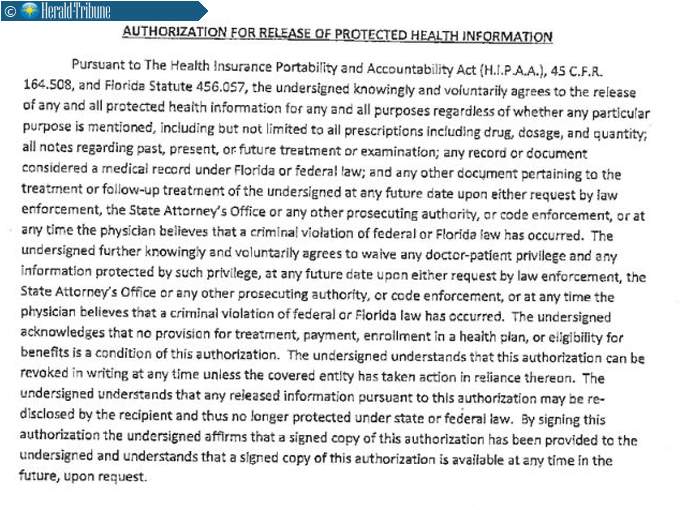Some of you are aware of a cottage industry whereby “entrepreneurs” scrape the websites of local law enforcement, put mugshots on the web, and then, for a small but tasty fee will take them down when an aggrieved individual complains. I wrote about this last year (as did Scott Greenfield, see also Reuters).
No, I don’t know how such people can live with themselves by creating misery for others just so they can turn a buck. But that is only a secondary point of this post.
As first reported by the New York Law Journal ($), a New York judge shot down the Freedom of Information request of Kyle Prall, who owns one of those extortion-like sites. In Prall v. New York City Department of Corrections, Justice Darrell Gavrin denied the request, which came to her attention when Prall sued for the information after being denied by the Department of Corrections.
The website, BustedMugshots.com (no link, no juice),publishes the names, addresses, dates of birth, arrest records and photos of inmates. The charge is $68 to have the data removed.
Given the problems with identify theft and the fact that much of the information is private, the court ruled that the Department did not act in an arbitrary and capricious manner in using the magic word ‘no.” The court wrote that the Department of Corrections:
demonstrated a particularized and specific justification for withholding the dates of birth and addresses of inmates. Respondents assert that the dates of birth and addresses of inmates are not relevant or essential to their work, as it is primarily charged with the duty of detaining inmates and preparing them for successful reentry into the community. This personal information has been reported to respondents in confidence and the information is not relevant to the ordinary work of the New York City Department of Corrections.
…
In view of the privacy interests at stake, disclosure of the records of respondents containing dates of birth and home addresses, and other personal information of inmates could easily be used to facilitate identity theft, thereby resulting in both economic and personal hardship to inmates. The dates of birth of inmates, who enjoy a lesser degree of privacy, have been protected from disclosure under FOIL. The decision of respondents to deny petitioner access to dates of birth and addresses of inmates was not arbitrary and capricious nor was it an abuse of discretion.[citations omitted for blog post]
And Prall didn’t get the pictures either, and that was based on his own conduct in trying to use the information to inflict harm. As much as I hate using block quotes from opinions
As to that branch of the petition which seeks photographs, respondents properly withheld photographs of inmates as the disclosure would constitute an unwarranted invasion of privacy resulting in personal and/or economic hardship to inmates. Specifically, respondents contend that “the department is not privy to the circumstances surrounding any trials, court appearances, and possible cooperation with enforcement” and the release of inmate photographs could expose them to harm. Furthermore, inmates will suffer economic hardship if their photographs are released because petitioner intends to post these photographs on his website and then demand a $68.00 fee to remove each photograph. Given the earning capacity of inmates, the $68.00 fee is quite steep. If the fee is not paid, an inmate’s photograph and other information will remain on the website, causing personal and economic hardship due to the notorious nature of the photograph which would be readily available to a prospective employer, creditor, potential landlord, or the like.
Respondents also claim inmate photographs are exempt from FOIL disclosure because disclosure will endanger the lives and safety of inmates and their family members. In support of their argument, respondents submitted the affidavit of E. Perez, Assistant Chief of Security for Department of Corrections. Mr. Perez states that he has more than 20 years experience and explains that the majority of violence in jails is gang-related. He opines that the release of photographs of inmates would increase gang violence targeted at inmates and their family members. Personal information such as names, addresses and photographs of gang members in jail, which is ordinarily not available to gang members outside the prisons, would be more readily available through exposure on the internet; this exposure would endanger the lives and safety of inmates. Interestingly, petitioner did not rebut the affidavit of Mr. Perez.
The only real question I have on this, why would a lawyer be a party do such a scummy project, whose only purpose is the creation of misery so that someone can profit? In this case Prall was represented by John Campbell of Tilem & Campbell. It is one thing to represent someone bad who’s been arrested, but assist him in creating misery by representing him in a civil suit? As I wrote just yesterday, you have to learn to say no to potential clients.
Update: Just days after this post, the United States Supreme Court weighed in on another case dealing with semi-public governement data: Sometimes the government will give it out and sometimes not, depending on who you are and what the data is being used for.



